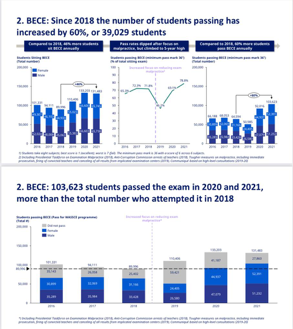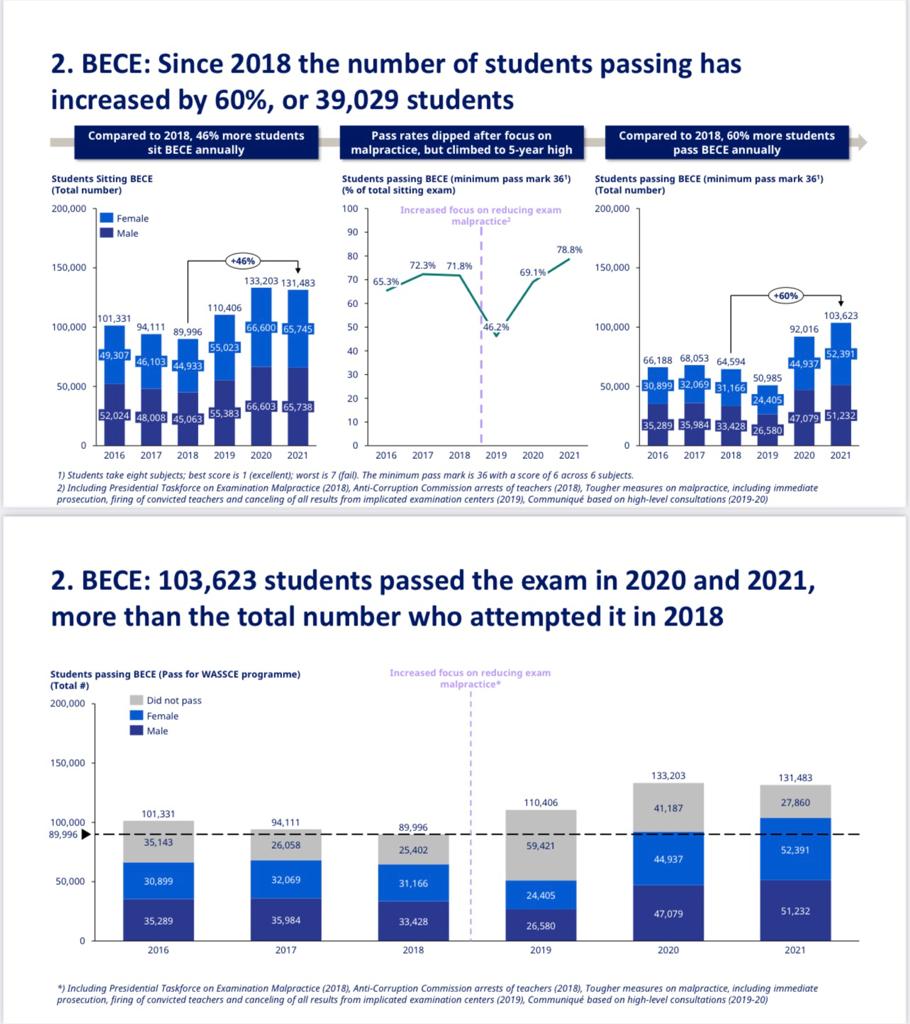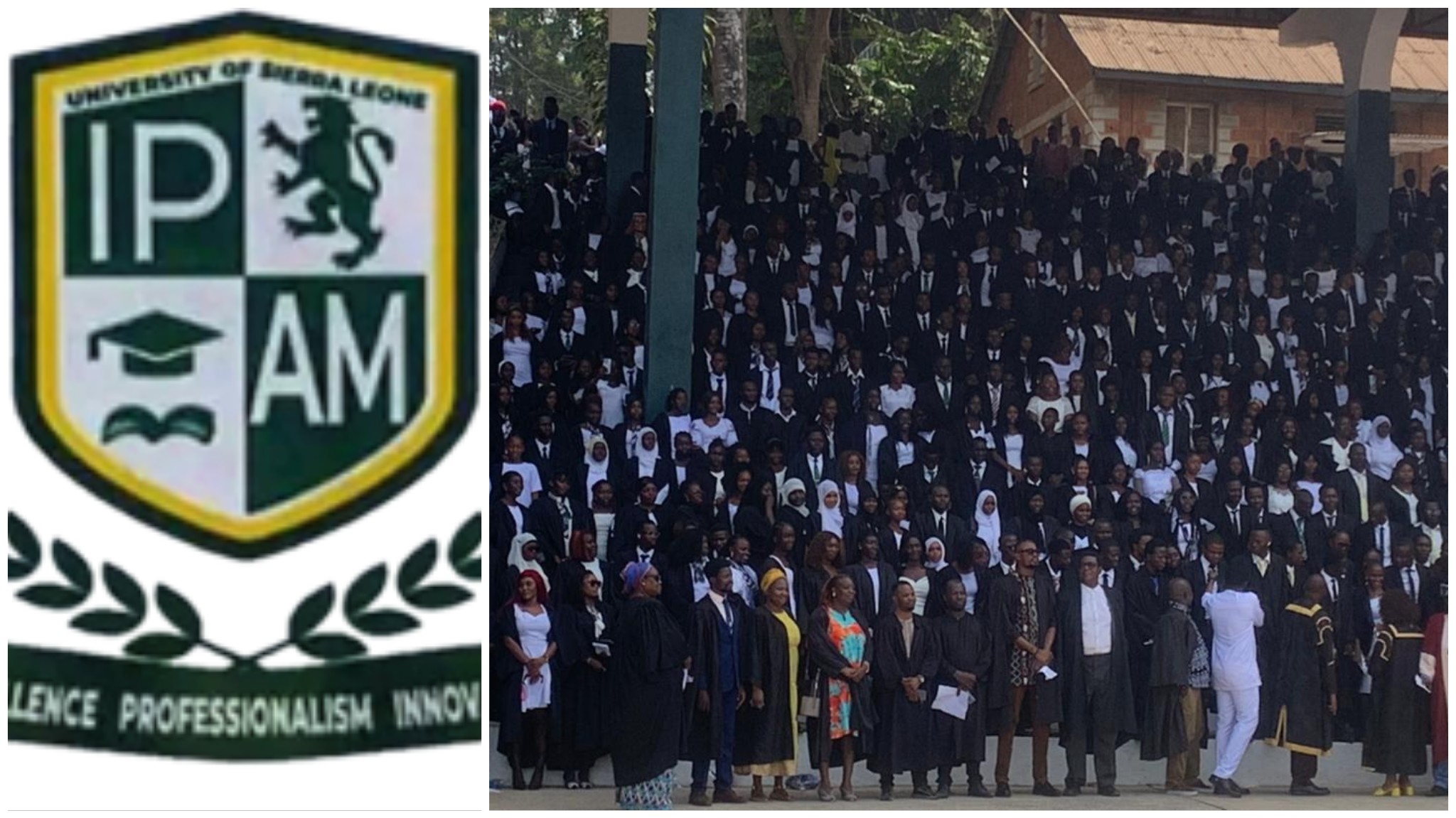
Since 2018 the annual number of students passing the Basic Education Certificate Examination (BECE) has increased by 60%, or 39,029 students nationwide.
In 2018, 64,594 students passed the BECE (with 31,166 male and 33,428 female), in 2019, 50,985 students passed the BECE (with 26,580 male and 24,405 female), in 2020, 92,016 passed the BECE (with 47,079 male and 44,937 female) and in 2021, 103,623 passed the BECE (with 51,232 male and 52,391 female).

The above data shows that 39,029 more students passed the BECE from 2018 to 2021 and for the very first time the BECE recorded more female pass rates than male.
The data also shows that more students passed in 2020 and 2021 than the total number of students who attempted the exam in 2018.
With the inclusion of Presidential Taskforce on Examination Malpractice (2018), Anti-Corruption Commission arrests of teachers (2018), Tougher measures on malpractice, including immediate prosecution, firing of convicted teachers, and canceling of all results from implicated examination centers (2019), Communiqué based on high-level consultations (2019-20), one would have anticipated a reduction in the pass rate but that was not the case.
“To me, this is the clearest indication yet that Sierra Leone is experiencing step-change improvement in basic education, even if so much remains to be done, according to the Minister of Basic and Senior Secondary Education Dr. David Moinina Sengeh.
He noted that besides the increase in the number of students passing the exam, the data also shows that there is a significant number of students returning to school or enrolling in schools nationwide.
National examination is taken in the third and final year of junior secondary school with students taking eight subjects; the best score is 1 (excellent), worst is 7 (fail). The minimum national pass mark is 36; with a score of 6 (pass) across 6 subjects.
Successful students transition into senior secondary school or technical and vocational education programs.
The FQSE programme has resulted in a tremendous increase in student enrolment nationwide. The number of learners enrolled in schools increased by almost 700,000 due mainly to the commencement of the FQSE.
The education sector data also reveal a significant increase in the number of schools approved for Government support. 53.4% of pre-primary, 78.7% of primary, 76.7% of junior secondary, and 80.4% of senior secondary schools are now approved- meaning they can receive tuition subsidies, textbooks, and other learning interventions. In 2018, less than half of the schools across basic and senior secondary were approved to receive government support.
The Gross Enrolment Rate (GER) in the primary has increased by 30 and 34 percentage points for boys and girls respectively between 2018 and 2019.
The 2019 school census revealed that schools in Sierra Leone are serviced by a total of 83,054 teachers, 66,501 (83.7%) of whom practice in approved schools.
Augustine Sankoh
Strategic Communications Analyst MBSSE
Email: asankoh@education.gov.sl



